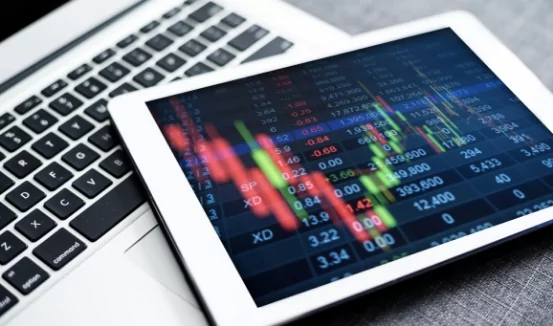
Stock markets are a market where capital exchanges occur, companies can find cheap funds, and investors share in the profits of companies even with small savings.
In addition to providing long-term resources to the real sector through financial instruments, stock exchanges are of great importance in socio-economic issues such as the spread of capital to the base, fair income distribution, and the fight against the informal economy.
It also has missions such as providing resources and liquidity to the economy, reliability and transparency. Listing of companies traded on the stock exchange, public offering, trading conditions in the market and the functioning of the stock exchange are subject to Capital Market Laws. Investors can easily obtain the financial statements and other company information that the companies traded in the stock exchange have to publish in accordance with the legislation, the prices and information formed in the stock market through the press and digital organs.
 fra40
fra40 eur50cfd
eur50cfd rus50
rus50 spa35
spa35Share prices on an exchange can be determined in a variety of ways, but the most common way is through an auction process, where buyers and sellers bid and bid to buy or sell. A bid is the price someone is willing to buy, and an offer (or ask) is the price one is willing to sell at. The general market is made up of millions of investors and traders who may have different ideas about the value of a particular stock and therefore the price at which they want to buy or sell it. The thousands of transactions that occur as these investors and traders turn their intentions into action by buying/or selling a stock cause minute-to-minute fluctuations in stocks throughout a trading day. An exchange provides a platform where this type of trading can be done easily by matching the buyers and sellers of stocks. The average person will need a stockbroker to access these exchanges.
This stockbroker acts as an intermediary between the buyer and the seller. Getting a stockbroker is most commonly accomplished by creating an account.
The exchange also provides a fascinating example of the laws of supply and demand at work in real time. There must be a buyer and a seller for each stock transaction. Due to the immutable laws of supply and demand, if there are more buyers than sellers for a particular stock, the stock price rises. Conversely, if the stock has more sellers than buyers, the price will tend to be bearish.
A trade transaction occurs when a buyer accepts the ask price or when a seller receives the bid price. If the buyers outnumber the sellers, they may be willing to raise their bids to buy the stock; therefore, sellers will push the price up and demand higher prices for it. If there are more sellers than buyers, they may be willing to accept lower offers for the stock, while buyers lower their bids, effectively forcing the price down.
Some exchanges rely on professional traders to maintain constant offers and offers, as a motivated buyer or seller may not be able to find each other at any given time. They are known as experts or market makers. A two-sided market consists of bid and bid, and the spread is the price difference between bid and bid.
The narrower the price gap and the larger the size of the bids and offers (the amount of shares on either side), the greater the liquidity of the stock. Also, the market is said to have good depth if there are a large number of buyers and sellers with higher and lower prices in turn. High-end stock markets generally tend to have small bid-ask spreads, high liquidity, and good depth.
Likewise, individual stocks of high-quality, large companies tend to have the same characteristics. Matching buyers and sellers of stocks on an exchange was originally done manually, but is now increasingly done through computerized trading systems. The manual trading method relied on a system known as the "open shout", in which traders used verbal and hand signal communications to buy and sell large blocks of stock in the "trading pit" or at the bottom of an exchange.
Until recently, an entrepreneur's ultimate goal was to list his company on a well-known stock exchange such as the New York Stock Exchange (NYSE) or the Nasdaq. Below are the benefits of this listing:
These benefits mean that most large companies are public rather than private; Huge private companies such as food and agriculture giant Cargill, industrial conglomerate Koch Industries, and DIY furniture retailer Ikea are among the world's most valuable private companies, and they are the exception rather than the norm.
There are some disadvantages of being listed on the stock market. These:
While stocks can be classified in a number of ways, the two most common are by market cap and industry.
Market value refers to the total market value of a company's current shares and is calculated by multiplying these shares by the current market price of one share. While the exact definition may vary by market, large-cap companies are generally considered to be companies with a market capitalization of $10 billion or more, mid-caps are those with a market capitalization of between $2 billion and $10 billion, and small-cap companies are between $300 million and $2 billion. varies between dollars.
The industry standard for classifying stocks by industry is the Global Industry Classification Standard (GICS), developed by the MSCI and S&P Dow Jones Indices in 1999 as an effective tool to capture the breadth, depth, and evolution of industry sectors. The GIC is a four-tier industry classification system consisting of 11 sectors and 24 sector groups. The 11 sectors are:
This industry classification makes it easy for investors to tailor their portfolios based on their risk tolerance and investment preferences. For example, conservative investors with income needs may weight their portfolios towards sectors whose constituent stocks have better price stability and offer attractive dividends - so-called "defense" sectors such as consumer fundamentals, healthcare, and utilities. Aggressive investors may also prefer more volatile sectors such as information technology, finance and energy.
NYSE and Nasdaq are the two largest stock exchanges in the world by total market capitalization of all listed companies. The number of US stock exchanges registered with the Securities and Exchange Commission has reached almost two dozen, but most of them are owned by the CBOE, Nasdaq or NYSE.
The table below is the 20 largest exchanges globally, sorted by the total market capitalization of their listed companies.
Domestic Market Cap (USD million)
| Exchange | Location | Market |
|---|---|---|
| NYSE | BIZ | 22.907.507 |
| NASADAQ | Japan | 22.907.507 |
| Euronext | France | 22.907.507 |
| Japan Exchange Group | Japan | 6.000.171 |
| Shanghai Stock Exchange | China | 5.037.349 |
| Euronext | France | 4.821.103 |
| Hong Kong Stock Exchange | Hong Kong | 4.595.366 |
| LSE Group | UK | 4.024.164 |
| Shenzhen Stock Exchange | China | 3.354.965 |
| TMX Group | Canada | 3.386.066 |
| Saudi Stock Exchange (Tadawul) | Saudi Arabia | 2.233.838 |


